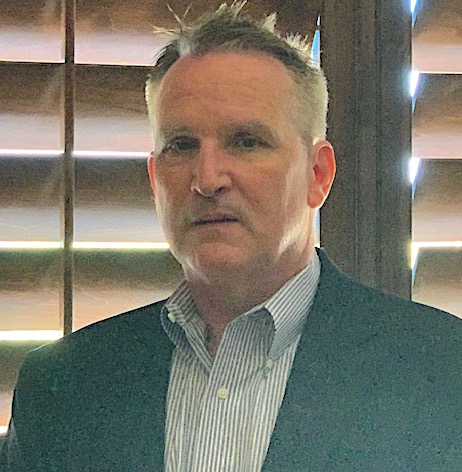
Meet Me! Attorney Q&A for Mike Christopher
What do you do for your clients?
For new clients, particularly outside general counsel clients, I first learn about their business and culture, which encompasses strategies, differentiators, execution plans, concerns and areas of risk. I assess short term needs, such as the catch up on any deferred legal needs, documentation, or risk mitigation.
My goal is to work within their framework and culture as an extension of the team, not to re-do everything to fit my style and preferred “forms.” I also look at the big milestones ahead, such as financing stages and strategic partner or customer agreements, and help them prepare so transactions and dealings go smoothly. Clients will find that I am professional, detail-oriented, flexible, and easy to work with.
Why did you decide to become an attorney?
It’s a great way to develop deep and diversified expertise across different industries and companies, and be able to apply that experience to help many clients. Very little about this profession is mundane, and it provides a constant opportunity to learn, evolve, and grow.
What gets you up in the morning? How do you typically start your day?
Coffee, for sure. I like to tackle the most complex issues at hand first. What motivates me is the constantly evolving set of challenges, and advancing the goals of my clients, helping to move them forward every day.
Why did you decide to become an Auxana GC?
I have been practicing for many years with a similar version of the Auxana philosophy. Auxana has captured and refined what I think is the best business model of the future among the emerging “NewLaw” models. Auxana offers a far more effective delivery of critical services to clients, with an energizing, entrepreneurial mindset that mirrors that of its client community. It wasn’t really a big change for me philosophically, but it gives me a much better and more defined platform and a like-minded, leveraged community.
What is your stance on the innovation of the legal industry?
It is way past due and slow to evolve. Client and most law firm needs generally work in tension, not coordination. Clients need experienced, efficient, legal assistance at affordable costs, and benefit greatly from working with legal counsel attuned to their unique business strategy, day-to-day operations and culture, and with a deeper relationship with their broader team. I think the traditional big law model serves a valuable function and will always continue to play a vital role, but doesn’t offer many flexible and workable alternatives for many companies across the complete business cycle. The model of high hourly rate “meter”-based billing, the pass through of expensive overhead and partner-associate leverage causes many emerging and growth oriented companies (as well as established companies) to utilize legal assistance sparingly. Lawyers are often incentivized to maximize billings rather than work efficiently. A byproduct is that clients do not effectively involve legal counsel into their day to day execution, and confine exposure to few team members, usually C-suite executives, in an attempt to “manage” legal costs rather than utilize legal assistance as an integral part of the growth plan. This leads to a lack of cohesion and deeper implementation of legal considerations in corporate strategy, and incurring unnecessary risks that could have been inexpensively avoided altogether. The billable hour grind also causes disconnect by lawyers from the ongoing day to day flow of the client’s business as they are involved narrowly and sporadically on project or problem focused tasks, and also burnout and turnover at firms.
The emerging model, like Auxana, solves these old dilemmas for both the client and the attorney. Clients benefit from a combination of far more legal assistance, delivered in a flexible and customized way, available much earlier in their life cycle, but at greatly reduced, easily budgeted costs. Attorneys in this model benefit from having more integration into their client’s strategy, a less mundane work day, professional growth, ownership of their time and the ability to achieve a flexible, work life balance without sacrificing income or work quality. Simply eliminating the estimated 50-65% of the billable hour represented by firm overhead allows outsourced attorneys to deliver the same legal work to clients at a fraction of the cost and on a fixed, recurring basis.
What would you do if you weren’t an attorney?
If I could make the odd shift hours (and pay) work, I’d be a police officer. I am a licensed officer in Texas, working through certification in Arizona, and volunteer as a reserve officer. It is a great way to contribute to the community and put day-to-day business problems in greater perspective.
